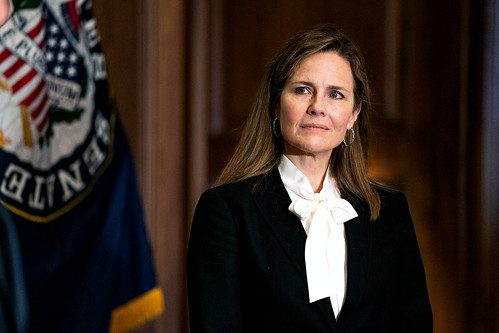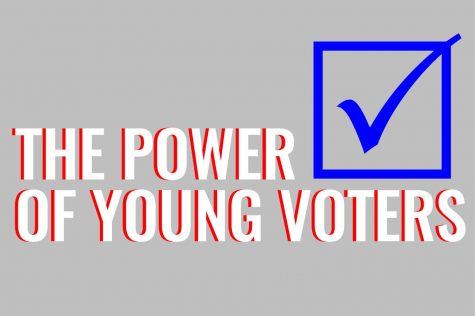ACB after RBG: politics and bias in action

Photo by: Getty Images
Supreme Court nominee Amy Coney Barrett
Recently, there has been political controversy surrounding the nomination of Amy Coney Barrett to the Supreme Court following the death of the historic Ruth Bader Ginsburg.
However, long-term precedent favors the Republicans. In the post-Civil War era, 11 Supreme Court justices have been nominated in an election year and 9 were confirmed. The 10th, Merrick Garland, was not provided a hearing by an almost identical Republican Senate in 2016 and the 11th is newly appointed Barrett.
Democrats have pointed out that this seat became vacant the closest to the election of any vacancy since 1864, in which Abraham Lincoln waited until after the upcoming election to nominate a replacement.
Senate Republicans refused to hear former President Barack Obama’s Supreme Court nominee Garland on the basis of proximity to the election, citing a tradition of abstaining from proceedings prior to the election.
Such a tradition was inconsistent with the history surrounding this sort of situation. South Carolina Senator Lindsey Graham was famously quoted in 2016, “I want you to use my words against me. If there’s a Republican president [elected] in 2016, and a vacancy occurs in the last year of the first term, you can say ‘Lindsey Graham said let’s let the next president, whoever it may be, make the nomination.’”
Unsurprisingly, many Democrats have brought this quote to attention following Republican leadership’s announcement of plans to fill the vacancy.
Democrats have claimed hypocrisy in the Republicans’ attempts to fill the seat on the bench after refusing Obama’s nominee the simple opportunity to speak. Republicans have responded saying that they are simply fulfilling a constitutional obligation to attend such an event, and that Democrats would be seeking the same course of action in the Republicans’ situation.
Another complaint levied at Senate Republicans is that they are rushing to confirm a Justice, impeding the Senate from pursuit of bipartisan coronavirus relief, which is an issue a majority of voters polled think demands immediate attention, believing the confirmation should be postponed until after the election. Republican Senator Joni Ernst refuted those claims today saying that the Republican Senate did introduce a relief bill a number of weeks ago that was blocked by the Democrats.
Democratic hope temporarily rested in the hands of Utah senator Mitt Romney, who was the lone Republican supporting any form of impeachment of President Trump, and has been an outspoken critic of him. But, after deliberation, Romney eventually announced he would back filling the vacancy.
Currently only two Republicans publicly renounced support for replacing Ginsburg: Susan Collins of Maine, who is currently locked in a tight reelection race, and Lisa Murkowski of Alaska, who also opposed Garland’s nomination on the basis of proximity to the election.
Your donation will support the student journalists of Pittsburg High School - KS. Your contribution will allow us to purchase equipment and cover our annual website hosting costs.










